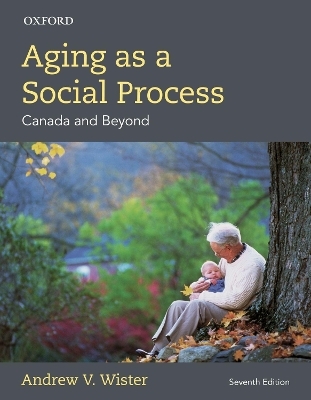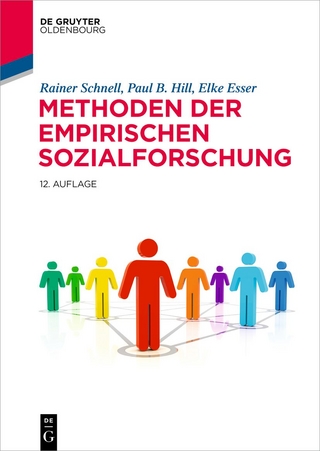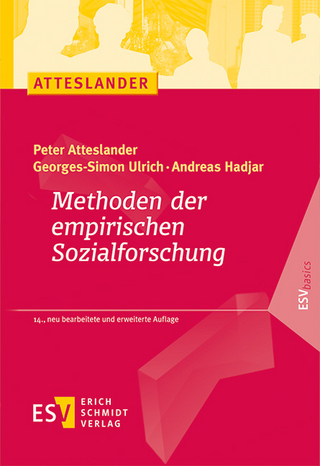
Aging as a Social Process
Oxford University Press, Canada (Verlag)
978-0-19-902842-9 (ISBN)
The most comprehensive study of the sociology of aging, featuring coverage of the latest issues in the field, recent research and data, and real-world examples from Canada and around the globe
Looking beyond biology to explore the complex social process of aging, this text draws on a wide variety of theoretical and methodological perspectives to reveal the individual and societal dimensions of aging in Canada.
Andrew V. Wister is the Director of the Gerontology Research Centre at Simon Fraser University. He is also currently Chair of the National Seniors Council of Canada. Andrew has written several important articles on gerontology in Canada, and worked in conjunction with Barry McPherson on the last edition of Aging as a Social Process.
Note: All chapters include:
- Learning Objectives and Key Facts
- Highlight Boxes
- Summary
- For Reflection, Debate, or Action
- Key Terms
- Multimedia Resources
- Notes
Preface
Acknowledgments
Developments in Social Gerontology since 1940 That Have Had a Major Impact on Canadian Research, Policy, and Practice
Part One: Interweaving Individual and Population Aging
1. Aging as a Social Process
Introduction: Challenges and Opportunities within an Aging World
Population Aging: Adding Years to Life
Individual Aging: Adding Life to Years
Interacting Aging Processes
The Social World of Aging
Stereotypes and Their Influence on Individuals and Society
The Field of Gerontology Matures
Three Life Course Conceptual Dimensions to Understand the Study of Aging
Critical Issues and Challenges for an Aging Society
2. Historical and Cultural Aspects of Aging
Introduction: Diversity in Aging across Time, Place, and Culture
Aging in Canada's Multicultural Society
The Multiple Dimensions and Meanings of Culture
Historical and Comparative Approaches to Understanding Aging Processes
An Intersectionality Lens to Cultural Experiences and Identity
The Modernization Hypothesis and the Changing Status of Older People
The Modernization Hypothesis and the Changing Status of Older People
Diversity of Aging during Modernization
Aging in Subcultures
3. Integrating Physical, Psychological, and Social Change across the Life Course
Introduction
Aging, Physical Structure, and the Physiological Systems
Aging and the Motor and Sensory Systems
Aging and Cognitive Processes
Personality Processes and Aging
Cognitive Vitality among the Very Old
4. Population Aging: Understanding the Importance of Demography
Introduction
The Study of Demography
Global Demographic and Epidemiological Transitions
Demographic Variations among Generations and Age Cohorts
Demography Is Not Destiny: The Misuse of Demographic Statistics
An Expanding Older Population
The Significance of Demographic Indices
Geographic Distribution of the Aging Population
Part Two: The Social, Environmental, and Health Contexts of Aging
5. Theories and Research in Explaining and Understanding Aging Phenomena
Introduction
The Goals of Scholarly Research
Developing Knowledge: Multiplicity in Perspectives and Theories
Research Methods Applied to Aging and the Aged: The Search for Answers
Methodological Issues in Aging Research
6. Intersections of Social Structures, Social Inequality, and the Life Course
Introduction
Social Structures and Aging
Age Structures and the Life Course
Age Structures and Social Change
7. Health Status and Health-Care Transitions in an Aging Context
Introduction: What Is Health?
Models of Health and Health Care
Is the Older Population Healthier over Time?
Is the Mid-Life Population Healthier over Time?
Increasing Longevity and Centenarians
Dimensions of Health and Illness
Mental Health
Canada's Health-Care System and Population Aging
8. The Lived Environment: Community, Housing, and Place
Introduction
The Multiple Meanings of Community
An Ecological Model of Aging: Person-Environment Interaction
Coping with the Environment: Challenges and Adaptations
Living Arrangements in Later Life
Housing Alternatives in Later Life
Changing Places: Local Moves and Migration in Later Life
Part Three: Aging, Social Institutions, and Public Policy
9. Family Ties, Relationships, and Transitions
Introduction
The Concept of Family
Changing Family and Kinship Structures
Factors Influencing Family Relationships
Family Ties and Relationships
Life Transitions in a Family Context
10. Later Life Work, Retirement, and Economic Security
Introduction
Older Workers in the Pre-retirement Years
The Process of Retirement
Economic Security in Later Life
11. Social Participation, Social Connectedness, and Leisure among Older Persons
Introduction
Social Networks over the Lifecourse
Loneliness and Social Isolation in Later Life: Myth or Fact?
Social Participation in Later Life
Asocial Behaviour: Older Criminals
Leisure and Aging: Conceptual and Methodological Issues
12. The Completion of the Life Course: Social Support, Public Policy, and Dying Well
Introduction
Social Support and Caregiving in an Aging Society
Informal Social Support
Formal Social Support
Social Intervention Strategies and Issues
End of the Life Course: Dying Well, with Support and Dignity
Public Policy for an Aging Population
Appendix: Study Resources
Glossary
References
Index
Notes
| Erscheinungsdatum | 18.01.2019 |
|---|---|
| Zusatzinfo | 16 figures; 10 tables; 15 photos |
| Sprache | englisch |
| Maße | 180 x 229 mm |
| Gewicht | 706 g |
| Themenwelt | Sozialwissenschaften ► Soziologie ► Empirische Sozialforschung |
| ISBN-10 | 0-19-902842-7 / 0199028427 |
| ISBN-13 | 978-0-19-902842-9 / 9780199028429 |
| Zustand | Neuware |
| Haben Sie eine Frage zum Produkt? |
aus dem Bereich


